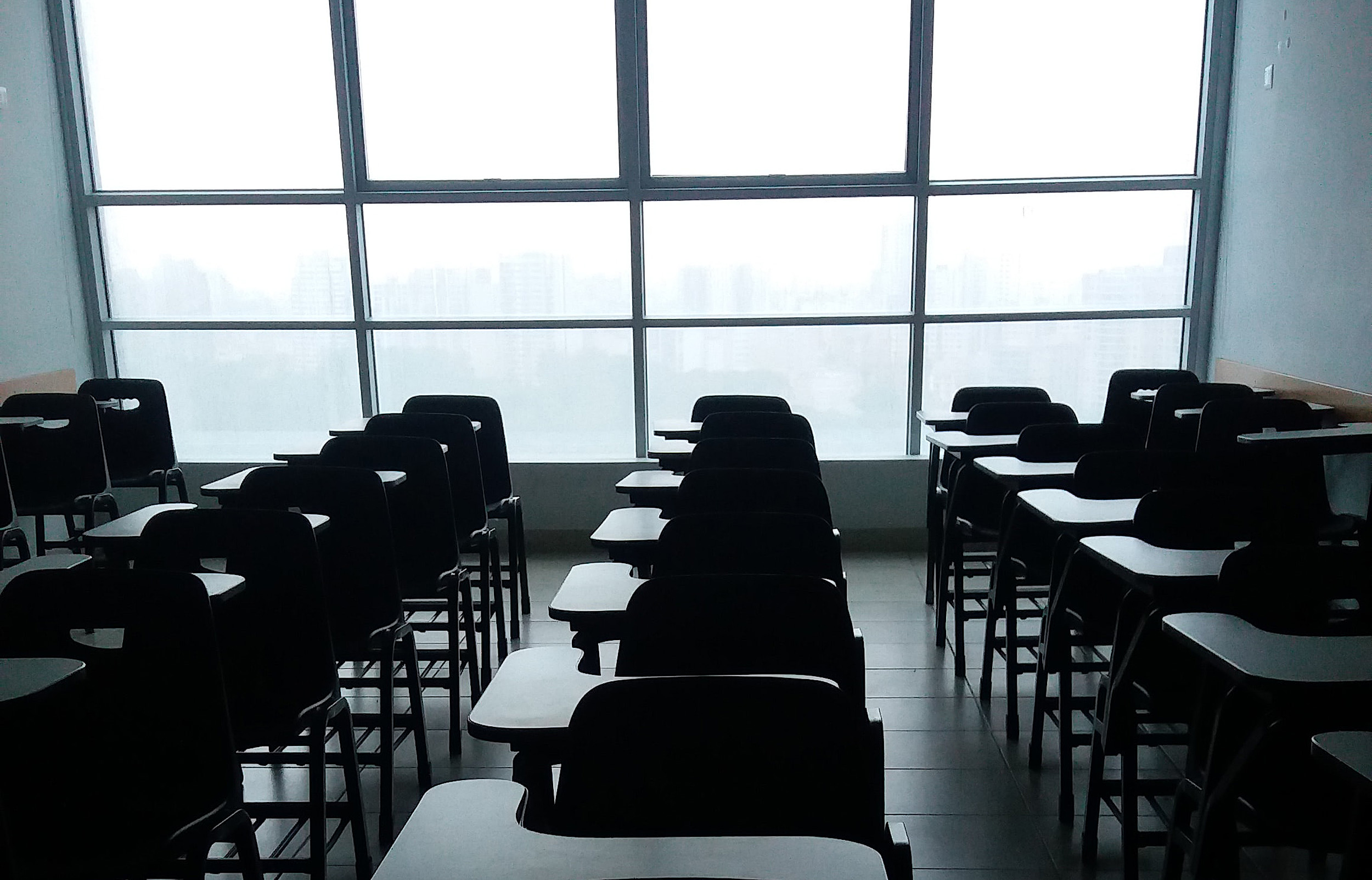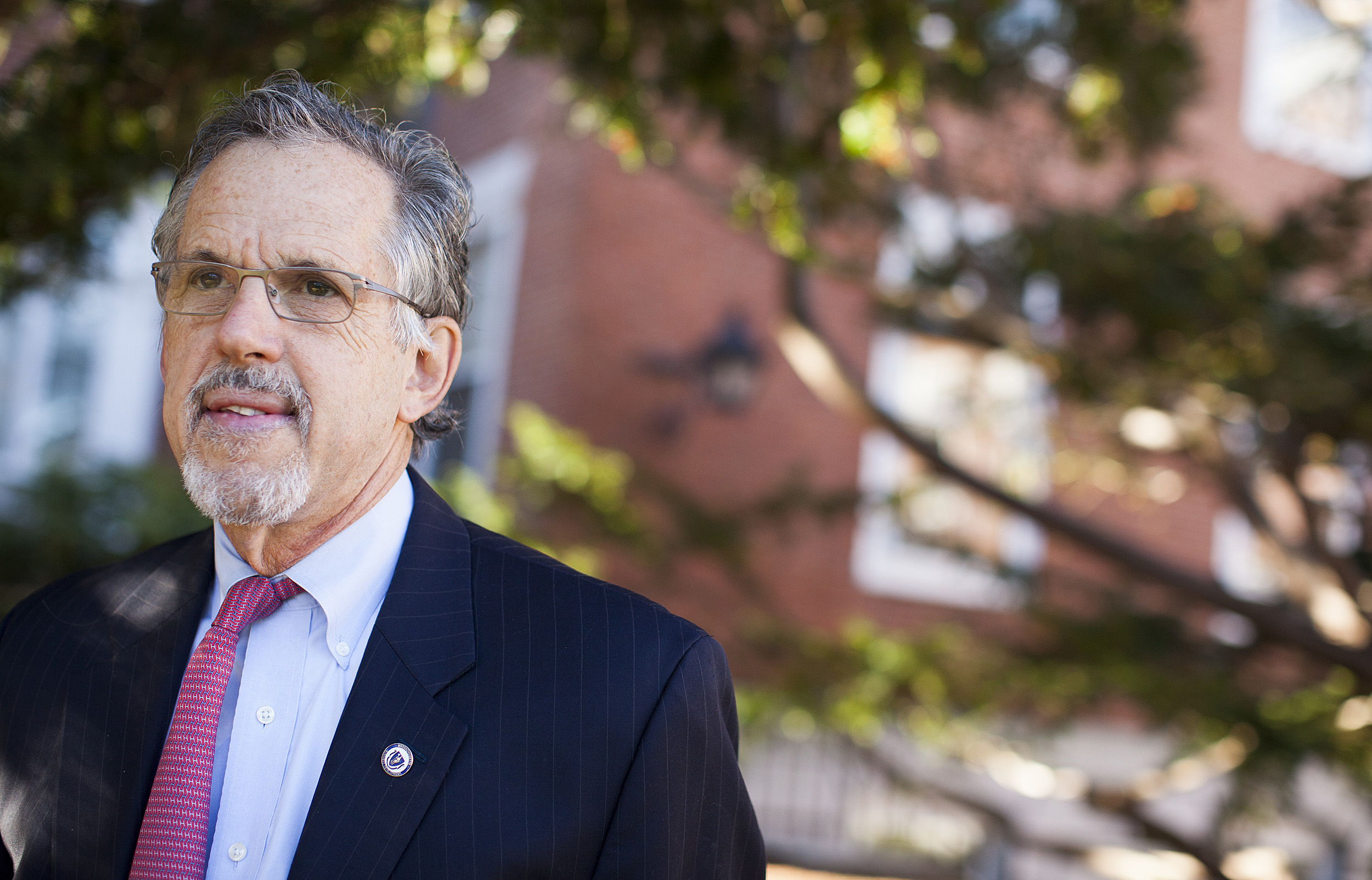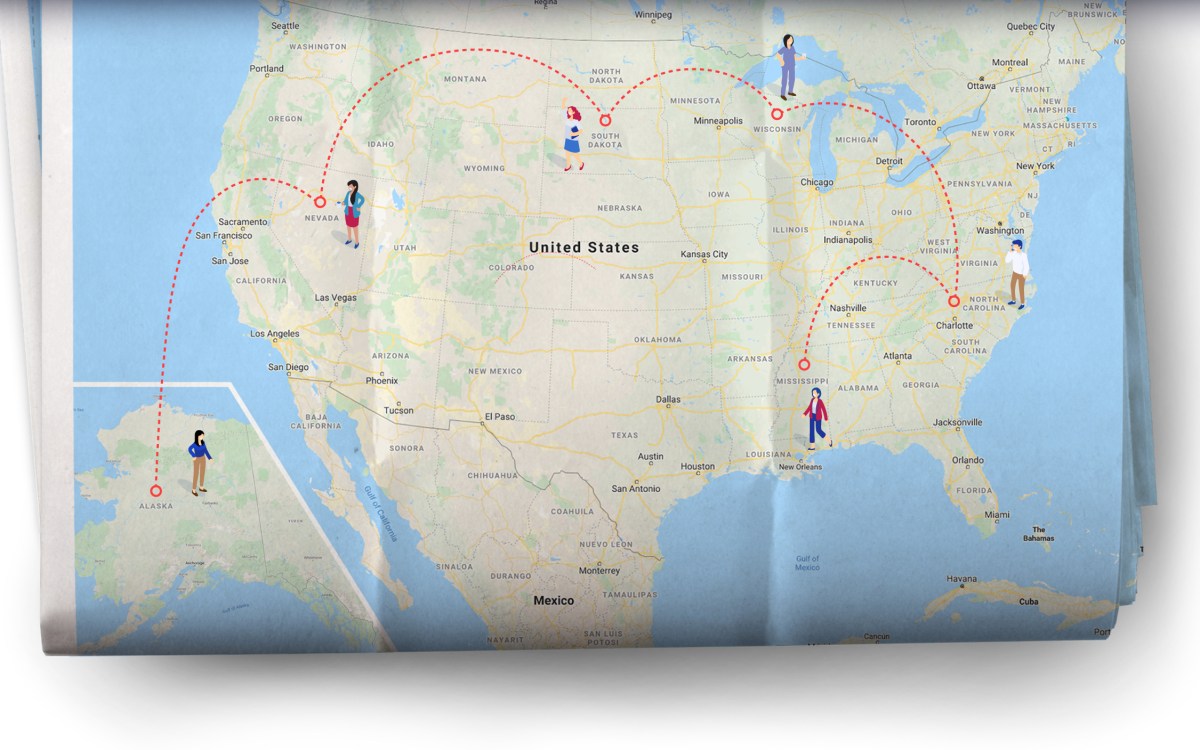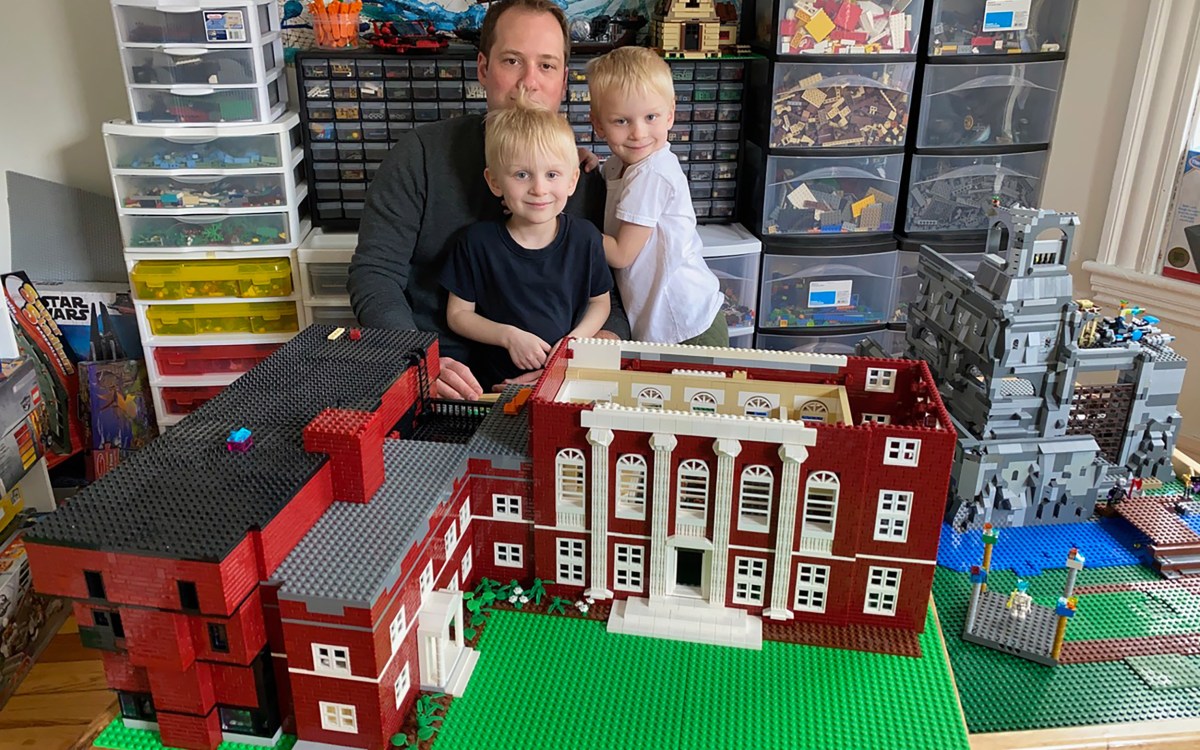
Rubén Rodriguez/Unsplash
Time to fix American education with race-for-space resolve
Paul Reville says COVID-19 school closures have turned a spotlight on inequities and other shortcomings
This is part of our Coronavirus Update series in which Harvard specialists in epidemiology, infectious disease, economics, politics, and other disciplines offer insights into what the latest developments in the COVID-19 outbreak may bring.
As former secretary of education for Massachusetts, Paul Reville is keenly aware of the financial and resource disparities between districts, schools, and individual students. The school closings due to coronavirus concerns have turned a spotlight on those problems and how they contribute to educational and income inequality in the nation. The Gazette talked to Reville, the Francis Keppel Professor of Practice of Educational Policy and Administration at Harvard Graduate School of Education, about the effects of the pandemic on schools and how the experience may inspire an overhaul of the American education system.
Q&A
Paul Reville
GAZETTE: Schools around the country have closed due to the coronavirus pandemic. Do these massive school closures have any precedent in the history of the United States?
REVILLE: We’ve certainly had school closures in particular jurisdictions after a natural disaster, like in New Orleans after the hurricane. But on this scale? No, certainly not in my lifetime. There were substantial closings in many places during the 1918 Spanish Flu, some as long as four months, but not as widespread as those we’re seeing today. We’re in uncharted territory.
GAZETTE: What lessons did school districts around the country learn from school closures in New Orleans after Hurricane Katrina, and other similar school closings?
REVILLE: I think the lessons we’ve learned are that it’s good [for school districts] to have a backup system, if they can afford it. I was talking recently with folks in a district in New Hampshire where, because of all the snow days they have in the wintertime, they had already developed a backup online learning system. That made the transition, in this period of school closure, a relatively easy one for them to undertake. They moved seamlessly to online instruction.
Most of our big systems don’t have this sort of backup. Now, however, we’re not only going to have to construct a backup to get through this crisis, but we’re going to have to develop new, permanent systems, redesigned to meet the needs which have been so glaringly exposed in this crisis. For example, we have always had large gaps in students’ learning opportunities after school, weekends, and in the summer. Disadvantaged students suffer the consequences of those gaps more than affluent children, who typically have lots of opportunities to fill in those gaps. I’m hoping that we can learn some things through this crisis about online delivery of not only instruction, but an array of opportunities for learning and support. In this way, we can make the most of the crisis to help redesign better systems of education and child development.
GAZETTE: Is that one of the silver linings of this public health crisis?
REVILLE: In politics we say, “Never lose the opportunity of a crisis.” And in this situation, we don’t simply want to frantically struggle to restore the status quo because the status quo wasn’t operating at an effective level and certainly wasn’t serving all of our children fairly. There are things we can learn in the messiness of adapting through this crisis, which has revealed profound disparities in children’s access to support and opportunities. We should be asking: How do we make our school, education, and child-development systems more individually responsive to the needs of our students? Why not construct a system that meets children where they are and gives them what they need inside and outside of school in order to be successful? Let’s take this opportunity to end the “one size fits all” factory model of education.
GAZETTE: How seriously are students going to be set back by not having formal instruction for at least two months, if not more?

“The best that can come of this is a new paradigm shift in terms of the way in which we look at education, because children’s well-being and success depend on more than just schooling,” Paul Reville said of the current situation. “We need to look holistically, at the entirety of children’s lives.”
Stephanie Mitchell/Harvard file photo
REVILLE: The first thing to consider is that it’s going to be a variable effect. We tend to regard our school systems uniformly, but actually schools are widely different in their operations and impact on children, just as our students themselves are very different from one another. Children come from very different backgrounds and have very different resources, opportunities, and support outside of school. Now that their entire learning lives, as well as their actual physical lives, are outside of school, those differences and disparities come into vivid view. Some students will be fine during this crisis because they’ll have high-quality learning opportunities, whether it’s formal schooling or informal homeschooling of some kind coupled with various enrichment opportunities. Conversely, other students won’t have access to anything of quality, and as a result will be at an enormous disadvantage. Generally speaking, the most economically challenged in our society will be the most vulnerable in this crisis, and the most advantaged are most likely to survive it without losing too much ground.
GAZETTE: Schools in Massachusetts are closed until May 4. Some people are saying they should remain closed through the end of the school year. What’s your take on this?
REVILLE: That should be a medically based judgment call that will be best made several weeks from now. If there’s evidence to suggest that students and teachers can safely return to school, then I’d say by all means. However, that seems unlikely.
GAZETTE: The digital divide between students has become apparent as schools have increasingly turned to online instruction. What can school systems do to address that gap?
REVILLE: Arguably, this is something that schools should have been doing a long time ago, opening up the whole frontier of out-of-school learning by virtue of making sure that all students have access to the technology and the internet they need in order to be connected in out-of-school hours. Students in certain school districts don’t have those affordances right now because often the school districts don’t have the budget to do this, but federal, state, and local taxpayers are starting to see the imperative for coming together to meet this need.
Twenty-first century learning absolutely requires technology and internet. We can’t leave this to chance or the accident of birth. All of our children should have the technology they need to learn outside of school. Some communities can take it for granted that their children will have such tools. Others who have been unable to afford to level the playing field are now finding ways to step up. Boston, for example, has bought 20,000 Chromebooks and is creating hotspots around the city where children and families can go to get internet access. That’s a great start but, in the long run, I think we can do better than that. At the same time, many communities still need help just to do what Boston has done for its students.
Communities and school districts are going to have to adapt to get students on a level playing field. Otherwise, many students will continue to be at a huge disadvantage. We can see this playing out now as our lower-income and more heterogeneous school districts struggle over whether to proceed with online instruction when not everyone can access it. Shutting down should not be an option. We have to find some middle ground, and that means the state and local school districts are going to have to act urgently and nimbly to fill in the gaps in technology and internet access.
GAZETTE: What can parents can do to help with the homeschooling of their children in the current crisis?
“In this situation, we don’t simply want to frantically struggle to restore the status quo because the status quo wasn’t operating at an effective level and certainly wasn’t serving all of our children fairly.”
REVILLE: School districts can be helpful by giving parents guidance about how to constructively use this time. The default in our education system is now homeschooling. Virtually all parents are doing some form of homeschooling, whether they want to or not. And the question is: What resources, support, or capacity do they have to do homeschooling effectively? A lot of parents are struggling with that.
And again, we have widely variable capacity in our families and school systems. Some families have parents home all day, while other parents have to go to work. Some school systems are doing online classes all day long, and the students are fully engaged and have lots of homework, and the parents don’t need to do much. In other cases, there is virtually nothing going on at the school level, and everything falls to the parents. In the meantime, lots of organizations are springing up, offering different kinds of resources such as handbooks and curriculum outlines, while many school systems are coming up with guidance documents to help parents create a positive learning environment in their homes by engaging children in challenging activities so they keep learning.
There are lots of creative things that can be done at home. But the challenge, of course, for parents is that they are contending with working from home, and in other cases, having to leave home to do their jobs. We have to be aware that families are facing myriad challenges right now. If we’re not careful, we risk overloading families. We have to strike a balance between what children need and what families can do, and how you maintain some kind of work-life balance in the home environment. Finally, we must recognize the equity issues in the forced overreliance on homeschooling so that we avoid further disadvantaging the already disadvantaged.
GAZETTE: What has been the biggest surprise for you thus far?
REVILLE: One that’s most striking to me is that because schools are closed, parents and the general public have become more aware than at any time in my memory of the inequities in children’s lives outside of school. Suddenly we see front-page coverage about food deficits, inadequate access to health and mental health, problems with housing stability, and access to educational technology and internet. Those of us in education know these problems have existed forever. What has happened is like a giant tidal wave that came and sucked the water off the ocean floor, revealing all these uncomfortable realities that had been beneath the water from time immemorial. This newfound public awareness of pervasive inequities, I hope, will create a sense of urgency in the public domain. We need to correct for these inequities in order for education to realize its ambitious goals. We need to redesign our systems of child development and education. The most obvious place to start for schools is working on equitable access to educational technology as a way to close the digital-learning gap.
GAZETTE: You’ve talked about some concrete changes that should be considered to level the playing field. But should we be thinking broadly about education in some new way?
REVILLE: The best that can come of this is a new paradigm shift in terms of the way in which we look at education, because children’s well-being and success depend on more than just schooling. We need to look holistically, at the entirety of children’s lives. In order for children to come to school ready to learn, they need a wide array of essential supports and opportunities outside of school. And we haven’t done a very good job of providing these. These education prerequisites go far beyond the purview of school systems, but rather are the responsibility of communities and society at large. In order to learn, children need equal access to health care, food, clean water, stable housing, and out-of-school enrichment opportunities, to name just a few preconditions. We have to reconceptualize the whole job of child development and education, and construct systems that meet children where they are and give them what they need, both inside and outside of school, in order for all of them to have a genuine opportunity to be successful.
Within this coronavirus crisis there is an opportunity to reshape American education. The only precedent in our field was when the Sputnik went up in 1957, and suddenly, Americans became very worried that their educational system wasn’t competitive with that of the Soviet Union. We felt vulnerable, like our defenses were down, like a nation at risk. And we decided to dramatically boost the involvement of the federal government in schooling and to increase and improve our scientific curriculum. We decided to look at education as an important factor in human capital development in this country. Again, in 1983, the report “Nation at Risk” warned of a similar risk: Our education system wasn’t up to the demands of a high-skills/high-knowledge economy.
We tried with our education reforms to build a 21st-century education system, but the results of that movement have been modest. We are still a nation at risk. We need another paradigm shift, where we look at our goals and aspirations for education, which are summed up in phrases like “No Child Left Behind,” “Every Student Succeeds,” and “All Means All,” and figure out how to build a system that has the capacity to deliver on that promise of equity and excellence in education for all of our students, and all means all. We’ve got that opportunity now. I hope we don’t fail to take advantage of it in a misguided rush to restore the status quo.
This interview has been condensed and edited for length and clarity.








